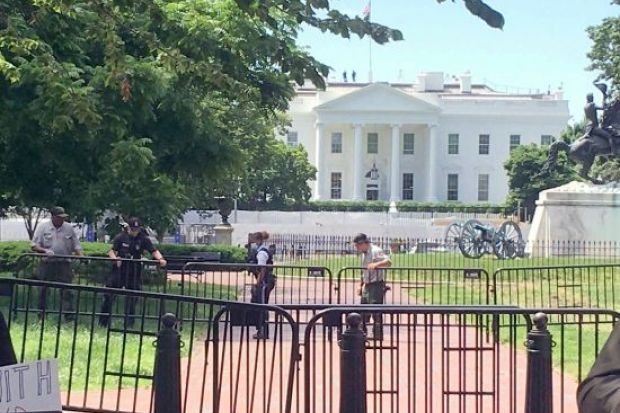The Biden administration is cutting verification requirements for students receiving federal financial aid as part of a series of manoeuvres aimed at lowering borrowing costs across US higher education.
The policy, to take effect for the coming academic year, will largely limit checks on student aid applications to cases of suspected identity theft and fraud, the US Education Department said in an announcement.
The existing process regularly requires a subset of applicants to provide additional documentation, such as transcripts of tax returns, to prove their family income and other details of their financial aid submission.
Almost all of the nearly 20 million college students in the US complete the standard federal aid application because colleges and universities also use the information to calculate aid packages.
But the Education Department’s verification demands do not extend to those applicants from wealthier families, who are not eligible for the Pell grant, the main federal subsidy for low-income students.
“As a result,” the department said in its announcement, “the verification process disproportionately burdens students from low-income backgrounds and students of colour.”
The change could help an additional 200,000 low-income and minority students enrol in college, the department said. It was also predicted by an outside advocacy group to reduce overall waste by reserving audit activity for cases most deserving of attention.
The move was part of a series of actions by the Biden administration to limit the cost burden on college students amid complaints from some Democrats that it has been doing too little and from Republicans that it has been going too far.
The administration last week announced that it was discharging $56 million (£41 million) in loans owed by students who attended Westwood College, the Marinello Schools of Beauty, and the Court Reporting Institute.
It was the third such announcement, following earlier moves to forgive $1 billion in debt owed by students who attended large for-profit chains that include ITT Technical Institute and Corinthian Colleges, and $1.3 billion owed by former students with permanent disabilities.
The administration is also ending its use of the Pennsylvania Higher Education Assistance Agency as a manager of student loans and grants. The state-based agency, Pheaa, has long been criticised by student aid advocates as delivering poor student service and a record of defrauding the government. It also was one of the larger such outside servicers, with a portfolio of 8.5 million borrowers.
Leading Democrats praised the Biden administration both for reducing the loan application verification requirements and for getting Pheaa out of the system.
But Senator Elizabeth Warren, a 2020 challenger to Joe Biden for the Democratic nomination for president, repeated her demands that Mr Biden go further and cancel up to $50,000 in federal student loan debt for all borrowers.
Ms Warren also has been leading demands in Congress for the administration, in the meantime, to extend beyond October a pandemic-related policy that has paused all student loan payments and accumulation of interest. Among her reasons for the extension, the senator cited the need for time for the department to find a replacement for Pheaa.
The top-ranking Republican on the Education Committee of the US House of Representatives, Virginia Foxx, also raised concern about the implications of Pheaa’s departure. Ms Foxx and other Republicans have backed greater private-sector involvement throughout higher education, and she sent a letter to the Education Department demanding details of how prepared it was for Pheaa’s exit.
Register to continue
Why register?
- Registration is free and only takes a moment
- Once registered, you can read 3 articles a month
- Sign up for our newsletter
Subscribe
Or subscribe for unlimited access to:
- Unlimited access to news, views, insights & reviews
- Digital editions
- Digital access to THE’s university and college rankings analysis
Already registered or a current subscriber? Login








